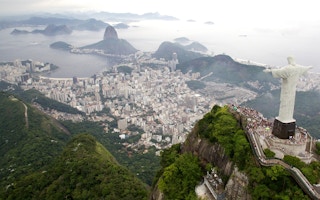In an unprecedented action, the leaders of three of the world’s main Christian faiths have spoken out less than two months before the crucial UN Glasgow climate talks begin, issuing a joint appeal to safeguard the future of the planet.
Pope Francis, head of the Roman Catholic Church, Ecumenical Patriarch Bartholomew of the Eastern Orthodox Church and Justin Welby, Archbishop of Canterbury and head of the worldwide Anglican Communion, have, for the first time, come together to plead for everyone to “choose life” and head off environmental catastrophe.
“We call on everyone, whatever their belief or world view, to endeavour to listen to the cry of the earth and of people who are poor, examining their behaviour and pledging meaningful sacrifices for the sake of the earth which God has given us,” says the statement.
The three leaders exercise influence over hundreds of millions of Christians around the world. In the past religious leaders have often been criticised for not taking a strong enough stand and speaking out on the climate emergency facing the world.
In the US, sections of the powerful Evangelical movement have argued against the science of climate change, saying God, not humankind, governed the climate. But attitudes are changing, even among the more politically right wing, Trump-supporting churches in the US.
In 2015 Pope Francis issued a 180-page encyclical – an official statement on church teaching − berating the powerful for their exploitation and misuse of the earth’s resources and calling for urgent action on climate change, particularly to safeguard the lives of the poor.
Bartholomew, often referred to as the Green Patriarch, has long been an activist on environmental issues, heading a series of symposia focusing on the damage climate change and pollution are causing to the world’s oceans.
Paying the price
Justin Welby has for many years spoken about the danger to humanity posed by the climate crisis. In 2019 he strongly criticised the investment industry for its lack of action on the issue.
This latest declaration uses stark language to emphasise the scale of the problem facing the world: “We have maximised our own interest at the expense of future generations … today, we are paying the price. The extreme weather and natural disasters of recent months reveal afresh to us with great force and at great human cost that climate change is not only a future challenge, but an immediate and urgent matter of survival.”
The three leaders talk about a profound injustice: “The people bearing the most catastrophic consequences of these abuses are the poorest and have been the least responsible for causing them.”
Of the forthcoming COP26 UN Glasgow climate talks, they say simply that the meeting will decide the future of the planet: “This is a critical moment. Our future and the future of our common home depend on it.”
This story was published with permission from Climate News Network.










